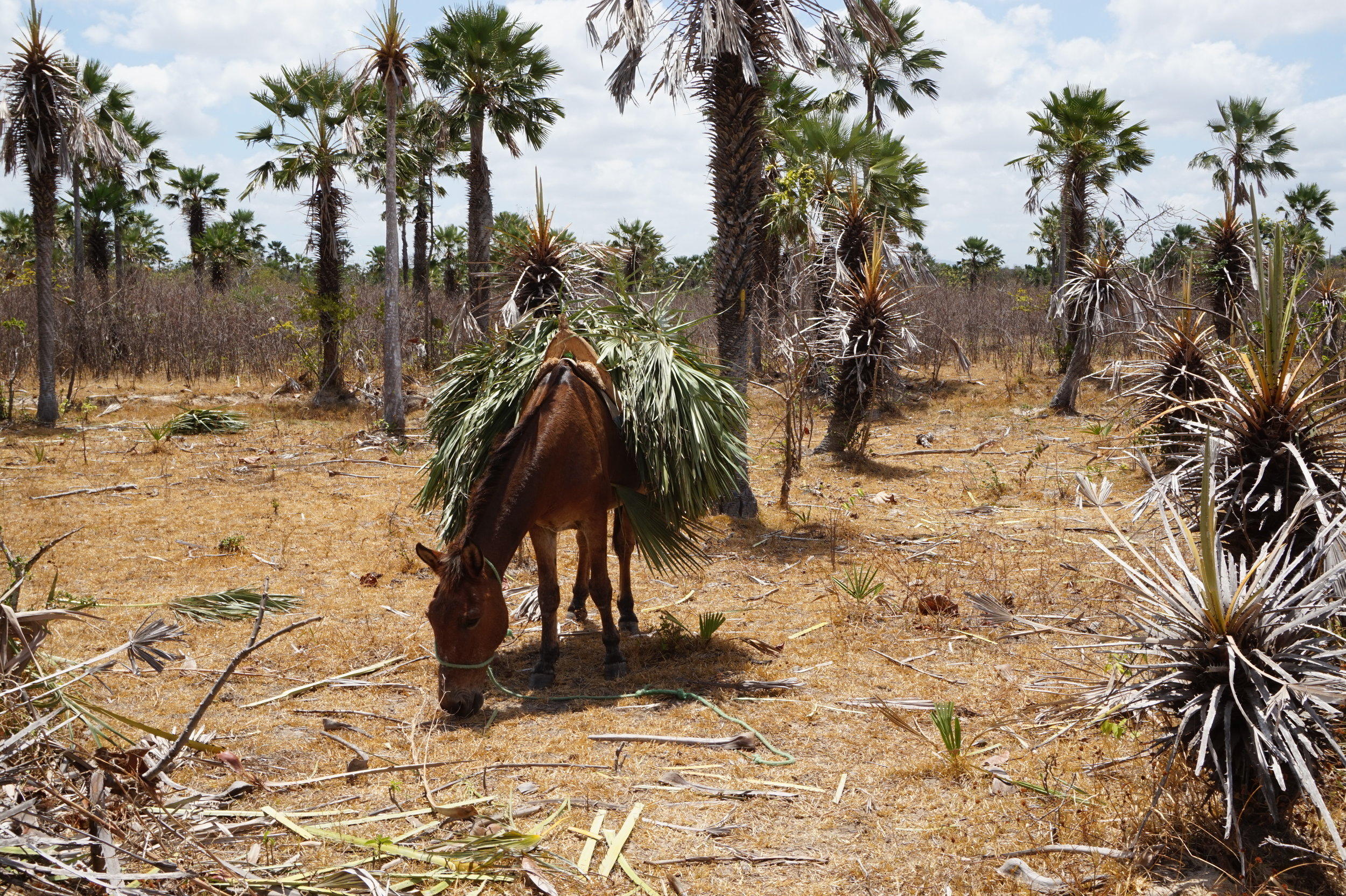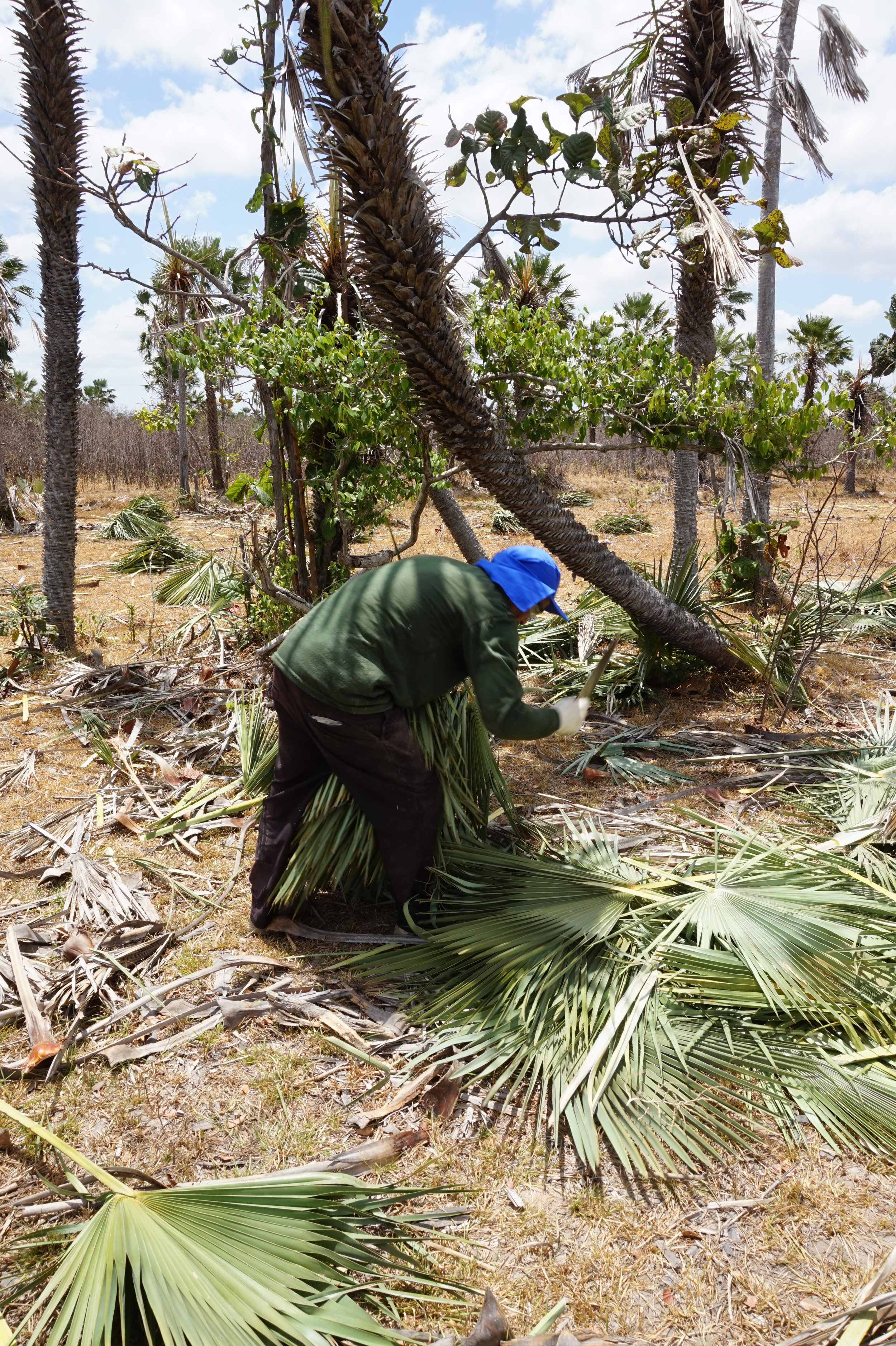Lara Pontes, President of Pontes Indústria de Cera
Lara Pontes, President of Pontes Indústria de Cera, a well-known carnauba wax manufacturer.
“There won’t be a place in the future for businesses that don’t take care of their people and environment”, says Lara Pontes who has been involved in her family’s company, a leading Carnauba wax manufacturer, for more than 30 years. Now serving as President following her father and grandfather, her two sisters and daughter are also involved with the company.
Tell me about Pontes, your company. And… what exactly is Carnauba wax?
Pontes is a family company in its fourth generation. We are the oldest carnauba wax manufacturer and were founded in 1956 by my grandfather, Liaderson Pontes. The management was passed onto my father and then later onto me. We have always appreciated and respected the importance of tradition in our business as well as in our local community.
Lara Pontes, President of Pontes Indústria de Cera, a well-known carnauba wax manufacturer.
We have also strived for new technologies and innovative processes to support our customers. Long-term partnerships based on trust and respect are also at the core of our business.
And Carnauba…it’s part of our culture and history! When everything else around is grey, the Carnauba tree stays green. We also call it the ‘tree of life’ because of its several uses and importance for local community. It’s used in products from candy, to cosmetics to car polish, among several other industries. The wax comes from trees that grow in the wild and are not cultivated. Local producers cut the leaves and dry them in the sun, a process that does not harm the environment. A fine powder is then extracted and taken to local refiners. Carnauba grows during the dry season, offering jobs when there is no rain and fewer opportunities to work in agriculture.
Additionally, the residue of the extraction process is used as fertilizer for agriculture and also for feeding animals. Carnauba extraction involves very little waste. The tree is considered so important in the region that its straw is often found in handicrafts and local architecture. Its image is even featured on regional flags.
The government is requiring formal actions now from the Carnauba sector to improve working conditions. What has been your company’s reaction to that and what steps are you taking?
In recent years the Brazilian Ministry of Labor (MPT) has investigated and found poor working conditions in a number of our country’s rural activities, including in Carnauba wax extraction. My company has always believed in investing in people and protecting the environment. People who collect Carnauba are independent contractors; meaning they sell the powder that becomes wax to a variety of local wax manufacturers in the region. In this context, in 2016 Pontes officially co-signed a commitment with MPT to grant the authority full access to our supply chain information, as well as to see our audit reports, in order to prevent and combat any possible form of slave labor. And I knew we had to invest even more time and effort into ensuring our company is sourcing responsibly, including working with local and international partners such as UEBT on improvements.
What are you doing now with UEBT and with this new education program that is part of your initiative called “Pontes para o Crescimento”
The partnership with UEBT was a vital instrument to redefine our methods to ensure respect for people and biodiversity. In 2005, we created Pontes para o Crescimento. We worked first with children, and then we expanded the work to the Carnauba laborers, led by a team of fifteen local specialists including lawyers and health & safety engineers. We have reached 81% of Carnauba fields, and distributed a wide range of thermal bottles, resting tents, personal protective equipment packages, and portable toilets. The training events educate workers about good collection practices, and how to conserve the Carnauba trees for the benefit of local biodiversity. And just to be clear, the training recipients are not required to sell their Carnauba to the Pontes company in return for any training or equipment. The program also offers free over-the-phone advice to workers seven days a week during the harvest season, empowering workers to understand their rights.
Working with UEBT, we have submitted an improvement plan for ethical sourcing, making us the first Carnauba wax manufacturer to be approved as a UEBT member. This means we are committed to meeting international standards for ethical sourcing and we will show improvement over time towards this goal. UEBT verifies our commitment and has approved our workplan. Someday we also hope to achieve UEBT certification for our entire Carnauba supply.
What do you think is the most important benefit of ethical sourcing?
The Initiative for Responsible Carnauba during a field trip in Fortaleza, Brazil.
The training we have done as part of our commitment to ethical sourcing is creating opportunities for workers to talk about their own experiences and voice their concerns. A major benefit has been that we help workers know their importance in decision making.
The work we have been doing is not only important for the workers in the field, but also for the whole Carnauba wax community, including the end customer who is assured that they are buying a product that promotes the well-being of individuals.
What do you hope for the future of the region and the people and biodiversity in it? What inspires you?
I hope to see our Carnauba fields preserved. I hope to see this century-long activity continuing to serve future generations; offering jobs, opportunities, hope, and dignity to our people. I hope to see the natural, premium and unmatched quality properties of Carnauba wax continue to serve people around the world through its several applications and uses. Carnauba inspires me!
Pictures © Pontes Industrías de Cera © UEBT © GIZ/Louisa Lösing








